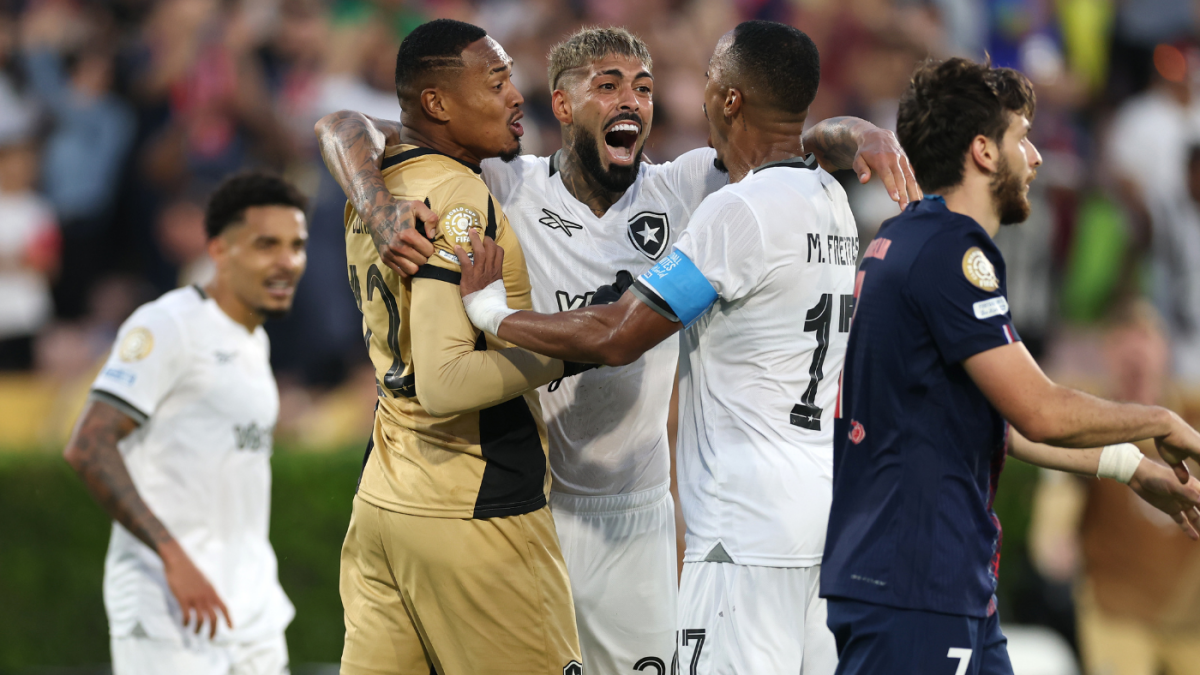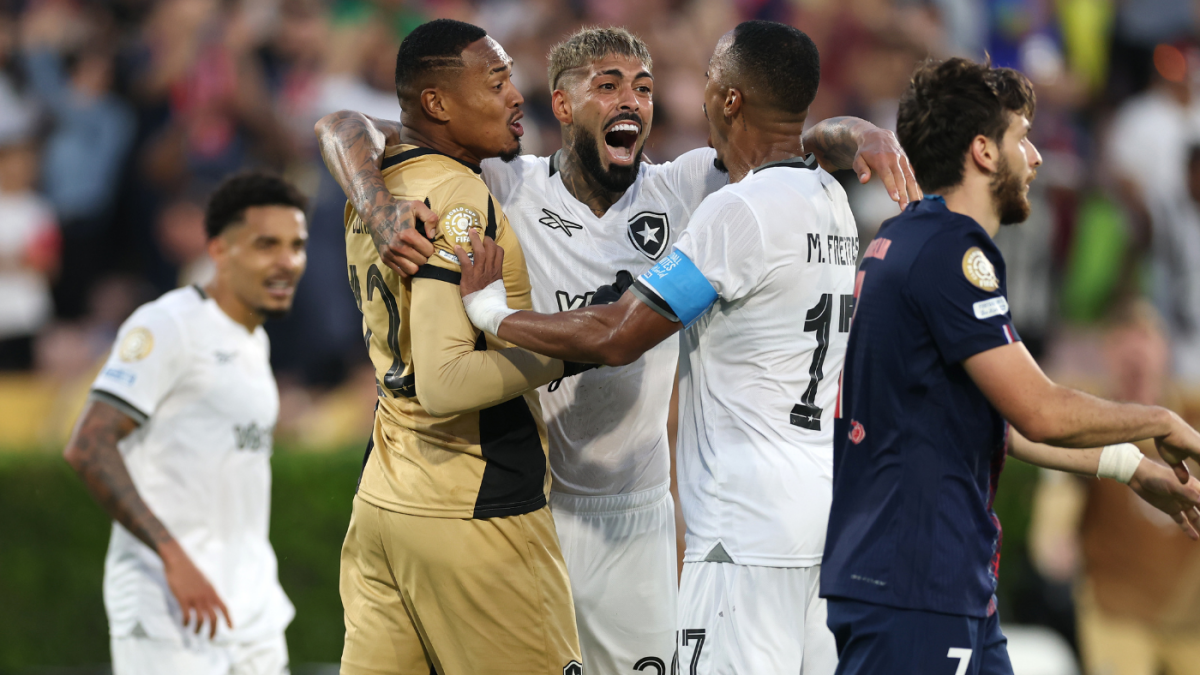A Shift in the Global Football Landscape
The 2025 FIFA Club World Cup has already delivered a series of unexpected results, with the most notable being the stunning 1-0 defeat of Paris Saint-Germain (PSG) by Brazilian side Botafogo. This outcome is not an isolated incident but rather a symptom of a broader trend: a challenging week for European teams and a burgeoning display of strength from South American and, surprisingly, North American clubs. The tournament, expanded and revamped, is quickly establishing itself as a platform where traditional hierarchies are being questioned and the global balance of power in football is undergoing a noticeable shift.
The Shock in Pasadena: Botafogo’s Triumph
The match between PSG and Botafogo, played at the Rose Bowl in Pasadena, was billed as a clash between European royalty and South American ambition. PSG, fresh off a historic Champions League win and a Coupe de France victory, entered the tournament as strong favorites. However, Botafogo, the reigning Copa Libertadores champions, had other plans. Igor Jesus’s 36th-minute goal proved to be the decisive moment, secured through a combination of astute attacking play and a remarkably resilient defensive performance.
Despite dominating possession—controlling the ball for approximately three-quarters of the game and significantly outshooting Botafogo 16-4—PSG were unable to break down the Brazilian defense. Botafogo’s efficiency was striking; all four of their shots were on target, highlighting a clinical approach that contrasted sharply with PSG’s profligacy. The victory wasn’t merely a lucky break; it was a testament to Botafogo’s tactical discipline and unwavering commitment. This win followed an earlier 4-0 victory against Atlético Madrid, placing them atop Group B.
A Week of Disappointment for European Giants
Botafogo’s victory over PSG wasn’t an isolated case of European underperformance. The tournament has witnessed a series of setbacks for traditionally dominant European clubs. PSG’s earlier draw against Monterrey in their opening game foreshadowed their vulnerability. The struggles extend beyond PSG; the overall performance of European teams has been notably weaker than anticipated. This has sparked debate about whether these results signal a genuine decline in European dominance or simply a period of adjustment to the expanded Club World Cup format.
The question of whether these struggles are “good for the Club World Cup” is gaining traction, suggesting that increased competitiveness elevates the tournament’s prestige and global appeal. The narrative of European invincibility is being challenged, creating a more compelling and unpredictable competition.
The Rise of South American Football
Botafogo’s success is emblematic of a broader resurgence in South American football. The Copa Libertadores champions demonstrated a level of tactical sophistication and physical intensity that caught PSG off guard. This victory builds upon a historical trend of South American teams consistently challenging European clubs in intercontinental competitions, though often falling short. The win over PSG is being framed as a moment where South American clubs are finally demanding the respect they deserve, dismantling the perception of European superiority.
Palmeiras, another prominent Brazilian club, is also highlighted as a consistent force in South American football, having won the Copa Libertadores twice since 2020. The tournament is seeing a renewed vigor from South American teams, who are not just competing but winning against the best in the world.
North American Impact: Inter Miami’s Breakthrough
Adding another layer of complexity to the tournament’s narrative is the success of Inter Miami. The MLS side achieved a historic 2-1 victory over Porto, becoming the first MLS team to win a game in the Club World Cup. This result, alongside Botafogo’s triumph, signals a potential shift in the global football landscape, with North American clubs beginning to assert themselves on the international stage. The win for Inter Miami has been described as ending thirteen years of European dominance in intercontinental club football.
PSG’s Situation: Transition and Challenges
While the loss to Botafogo is a setback, it’s important to consider PSG’s current circumstances. The team is undergoing a coaching transition, and several key players are dealing with injuries. Luis Enrique, the PSG manager, acknowledged the intensity and difficulty of the competition, stating that every team is highly motivated, especially when facing his squad. Despite the loss, Enrique emphasized that PSG is a young team with a point to prove, suggesting a focus on long-term development rather than immediate results. Their earlier win against Atlético Madrid demonstrates their potential, but consistency remains a key challenge.
A Tournament Redefined: The New Club World Cup Format
The 2025 Club World Cup represents a significant departure from its previous iterations. The expanded format, featuring more teams from across the globe, aims to create a more inclusive and competitive tournament. This new structure is designed to break the historical dominance of European clubs and provide a platform for teams from other continents to showcase their talent. The early results suggest that this goal is being realized, with clubs from Brazil and the United States making a significant impact. The tournament is no longer simply a formality for European champions; it’s a genuine battle for global supremacy.
Looking Ahead: A More Competitive Future
The early stages of the 2025 FIFA Club World Cup have delivered a compelling narrative of disruption and change. Botafogo’s stunning victory over PSG, coupled with the successes of Inter Miami and the overall struggles of European teams, suggests that the global balance of power in football is shifting. The tournament is proving to be a platform where traditional hierarchies are being challenged, and the competition is more unpredictable and exciting than ever before.
The results are forcing a re-evaluation of perceptions about the relative strengths of different leagues and continents. The expanded format, designed to promote inclusivity and competitiveness, appears to be achieving its intended effect. As the tournament progresses, it will be fascinating to observe whether this trend continues and whether the 2025 Club World Cup marks the beginning of a new era in global football. The tournament is no longer about confirming European dominance; it’s about discovering who truly reigns supreme on the world stage.












